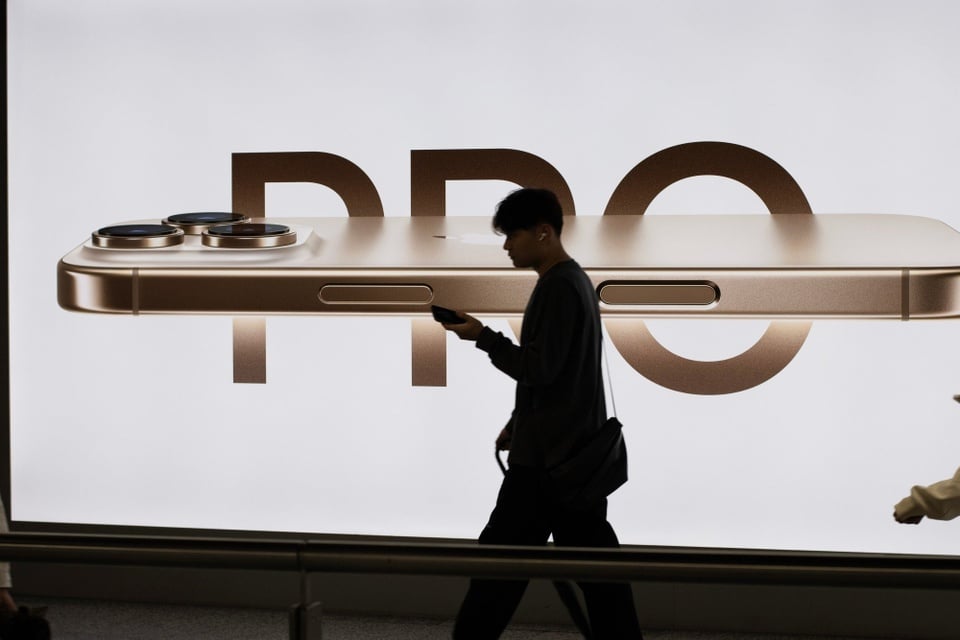 |
iPhone 16 Pro billboard at a subway station in Shanghai (China). Photo: Shutterstock . |
According to data from market research firm Counterpoint Research , iPhone sales in China in the second quarter increased 8% compared to the same period last year.
This is the first time in two years that iPhone sales in China have recorded positive growth. This comes as Apple seeks to revive its smartphone business in China, one of its important markets.
Despite the positive signs, analysts say Apple still faces many challenges, especially against domestic rivals like Huawei, which recorded 12% growth in the second quarter.
Success through discounts
Analysts believe that Apple's "reversal" came from promotions that took place in May, when e-commerce platforms in China simultaneously reduced the price of iPhone 16. Apple also increased the price of old phones for new ones, encouraging users to upgrade.
“Apple's decision to adjust the price of the iPhone 16 in May was timely and well received by users, as it was just a week before the 618 shopping festival,” CNBC quoted analyst Ethan Qi from Counterpoint Research .
Apple also benefited from the launch of the iPhone 16e. In China, this model has an affordable price, attracting budget-conscious buyers when buying a new phone. Combined with the iPhone 16 Pro and 16 Pro Max, Apple recorded sales growth across all price segments.
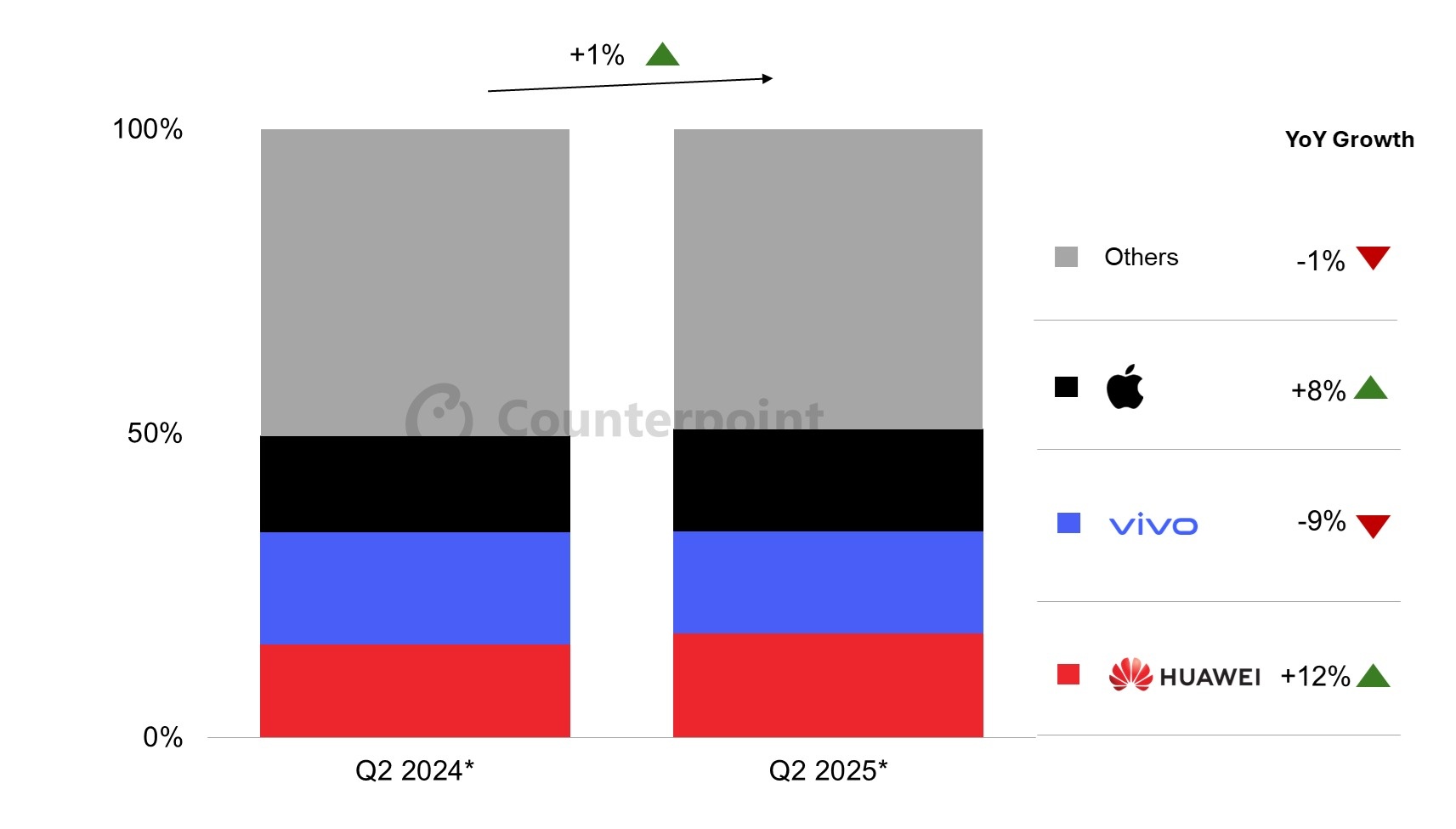 |
Market share and sales growth of the three major smartphone brands in China. Photo: Counterpoint Research . |
Apple's growth in China also pleased investors, who have seen the company's shares fall 15% since the start of the year amid a series of difficulties.
Specifically, US President Donald Trump used tariffs to call on Apple to move iPhone production back to the US, a move that experts say is nearly impossible.
In China, Apple is under competitive pressure from Huawei. The group's smartphone business was paralyzed by the US embargo, but has quickly recovered since returning in 2023 with devices using self-developed processing chips.
Since then, Huawei has continued to launch new smartphones in China, even returning to the international market. The company has had initial success as its market share in China has improved, with smartphone sales in the second quarter up 12% year-on-year.
Huawei is currently the largest smartphone brand in China in terms of market share, followed by Vivo and Apple. Vivo's smartphone sales decreased by 9% compared to the second quarter of 2024. Other notable names include Xiaomi and Oppo, which mainly target price-sensitive customers, creating an advantage thanks to strong configurations.
Difficulties still surround Apple
Analysts say difficulties will return to Apple in China in the second half of this year, especially after the launch of the iPhone 17.
“In the second half of the year, iPhone sales in China will decline due to lower spending by users, the iPhone 16 upgrade cycle is nearing its end while the iPhone 17 is unlikely to boost demand,” said analyst Ivan Lam from Counterpoint Research .
It is impossible not to mention the efforts from domestic competitors, especially Huawei, as the company focuses on expanding the high-end segment.
“Huawei still wins loyalty from users when they replace their old smartphones with Huawei phones,” Lam added.
According to SCMP , the above factors pose many challenges for Apple, even when the company participates in the national subsidy program to encourage users to buy iPhones.
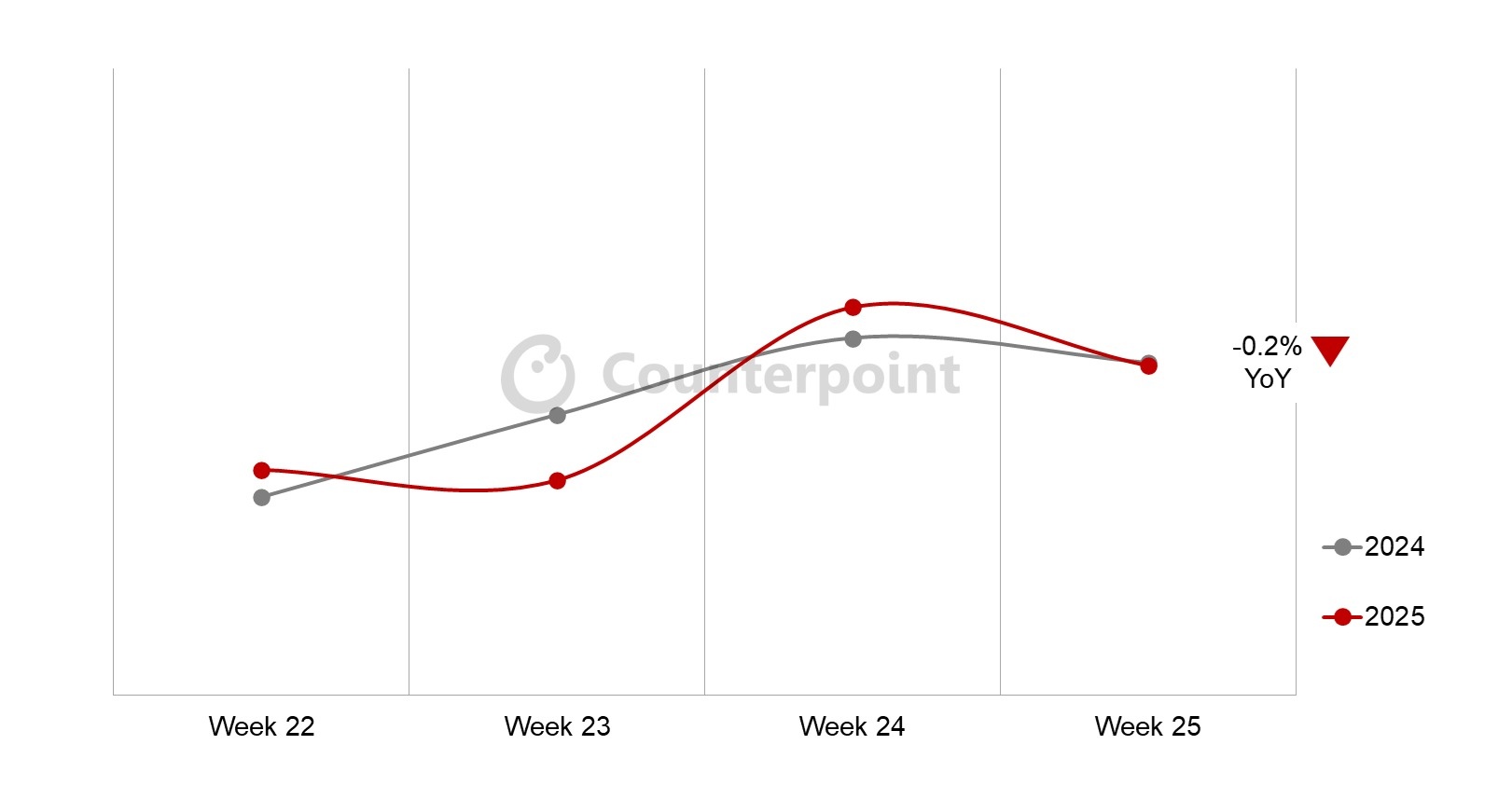 |
Smartphone sales in China during the 618 shopping festival. Photo: Counterpoint Research . |
According to Apple's announcement, some iPhones, iPads, and Apple Watches priced under 6,000 yuan ( US$837 ) are eligible for a maximum subsidy of 500 yuan (about US$69 ), while some MacBook and desktop Mac models are eligible for a maximum discount of 2,000 yuan (about US$279 ).
Analyst Mengmeng Zhang said that the growth in iPhone sales in the second quarter mainly came from the government 's subsidy policy, but the program may be scaled down in the second half of the year.
“This creates some risks, especially when recent iPhone discount seasons have not been so outstanding,” Zhang stressed.
According to market research firm IDC , Apple smartphone sales in China in 2025 could fall by 1.9%.
In addition to the economic downturn and competitive pressures, Apple still faces regulatory hurdles in China. While many domestic companies are focusing on improving AI tools, the company is still waiting for regulatory approval to launch Apple Intelligence.
Source: https://znews.vn/apple-nguoc-dong-tai-trung-quoc-post1566105.html


![[Photo] Closing of the 13th Conference of the 13th Party Central Committee](https://vphoto.vietnam.vn/thumb/1200x675/vietnam/resource/IMAGE/2025/10/08/1759893763535_ndo_br_a3-bnd-2504-jpg.webp)








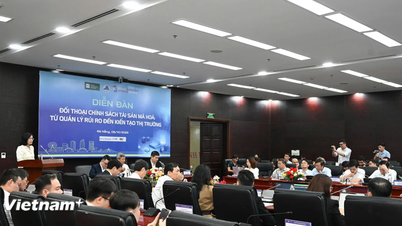

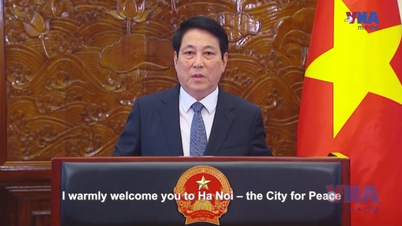



























































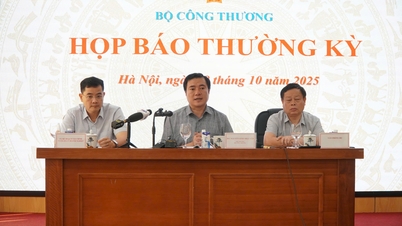






















Comment (0)